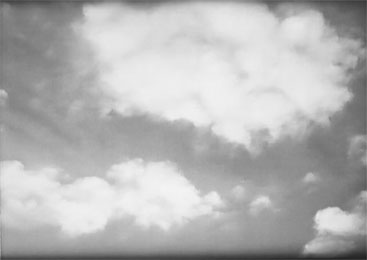
Born in 1914 in Gia-Dinh (VN)
Died in 1996 in Paris (FR)

1979
35 mm film transfered onto DVD, colour, sound
Durée : 48'
Year of Purchase: 2003
To show on the basis of something being missing, such is no doubt the obsessive quest in the films of Marguerite Duras. Like her stories and novels, they explore absence (of meaning, of the other); and her films are full of the idea of her own death; of its inability ever to replace the text. While Marguerite Duras has made screen versions of some of her narratives (her way of exhausting them perhaps), this cycle dating from 1979 is taken from no independent writing. The writing is introduced beneath, or beyond, the pictures, it never accompanies them. These four shorts are not blind films in which Duras took her experimentations with the cinema to their limits (L’Homme atlantique, of 1981, for instance). But they do carry the premises of it, being full of that ‘tepid softness of the threatened image’. They in fact start a transition, taking the disassociation of the picture and the soundtrack further on from work like India Song (1974), with a more conventional narrative structure.
Aurélia Steiner (Vancouver) begins with a crack noticed in the stonework. Then the horizon appears, which has ‘the evenness of a huge crossing-out’. A smooth, frail voice intones, ‘I love you, beyond my strength. I do not know you.’ It is an incantation that digs into the film with its mystery, undermining its every image; river banks, clouds and trees. All these places with no origin or reference. ‘I am beautiful, so beautiful I am a stranger to myself. My name is Aurélia Steiner. I am your girl. I am informed about you, through me.’ ‘I’, ‘you’ … But what ‘I’, what ‘you’? Carried off by these fluctuating identities, and by the conjugation of all the tenses, the text is borne along by a multiple voice, with ghosts passing through, over three generations of a Jewish family. Gradually, this slow montage of black and white panoramas together seems to echo this name that might carry within it a landscape: Aurélia Steiner as water and stone? It in any case carries within it a whole memory: ‘Aurélia is there or elsewhere. She is broken, scattered throughout the film. She is there, as elsewhere, in every Jew; the first generation is her, as is the last.’1
In Aurélia Steiner (Melbourne), pictures of the Seine have taken the place of pictures of the sea. Chaotic fluidity of writing, confusion of referents: the principles are identical. Whether urban or watery, the landscape is like a sensitive surface, a blank page, from which memory emerges, in that so typically Durassian mode: ‘The river drained off all the Jewish dead and carried them away. There was talk of Aurélia everywhere, you could hear her name being murmured under bridges, she was the memory of all those days. Yes, the river carried them off in the funerary boat towards the river’s singular end, the universal dilution of the sea […] The death of a Jew from Auschwitz for me populates the entire story of our time, the whole war. I think the Jews, this disturbance for me so powerful, and which I can see in all light, before which I stand in a killing clearsightedness, this ties in with the written word. Writing is seeking outside of yourself something that is already inside of yourself.’2
It is in the light of this statement that her film “Césarée” should be tackled with came about from the unused footage of “Navire Night”, dating from the same year (the images in Les mains négatives were also taken from there). Made up of stills of the Tuileries gardens and its statues by Maillol, “Césarée” is stamped with the memory of Berenice, queen of the Jews, and of her city of which nothing remains but the name, abandoned following her repudiation. There is this same confusion of time periods and resurgence of narratives in Les Mains négatives. Its dolly shots trace a slow advance through Paris, which is deepened by the reference to the drawings of hands found in many caves dating from the Magdalenian age. Thus comes to a head an ode to humanity, and to all its excluded ones, that daylight, only just risen over the city, has not yet forced into extinction. Its murmur resounds for a long time: ‘Everything is being crushed, I love you farther than you. I would love anyone hearing me shout that I love you.’
Emmanuelle Lequeux
1 In Aurélia Aurélia, special Duras issue of Les cahiers de l’Herne, Paris, 2005.
2 Idem.